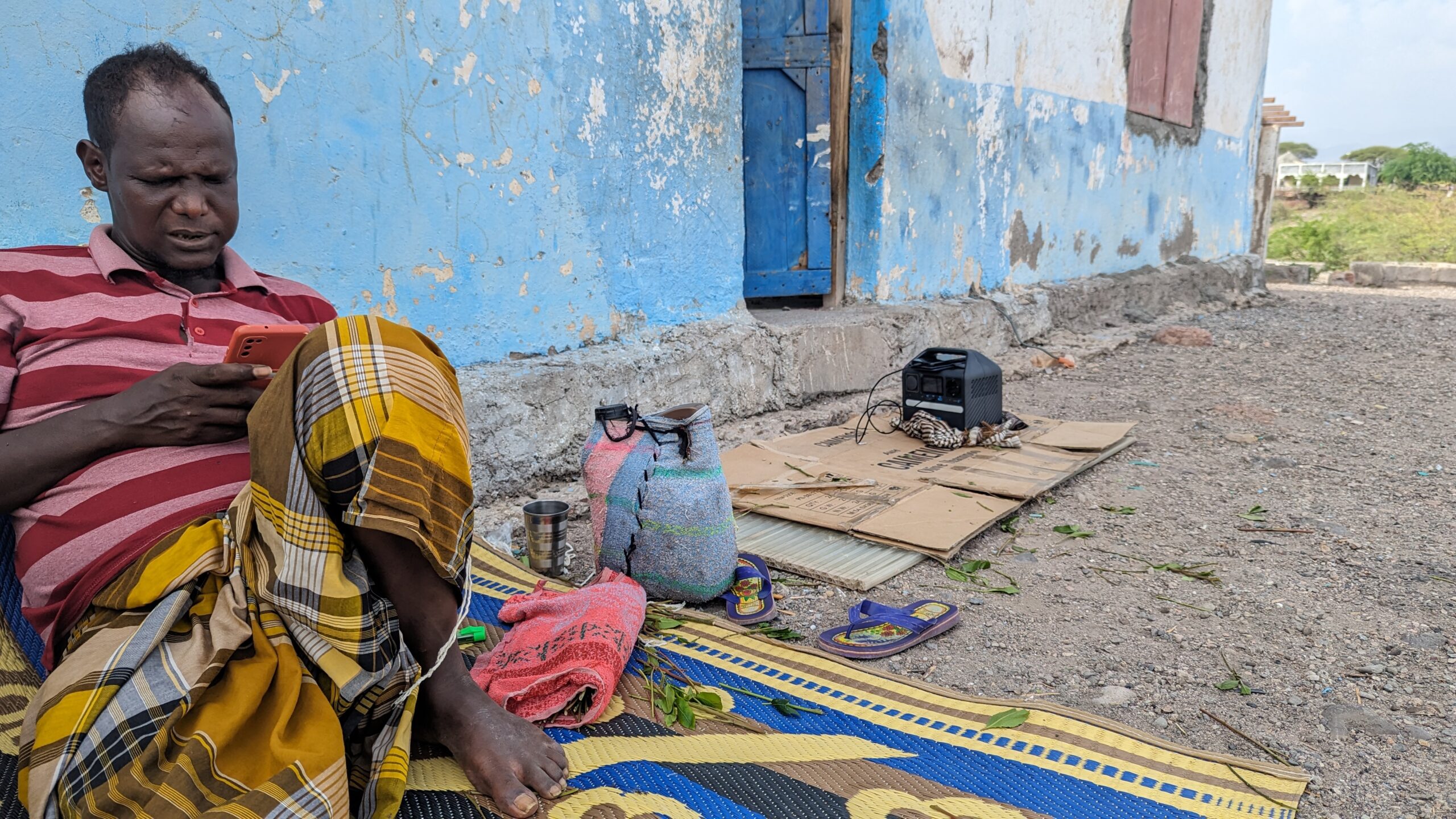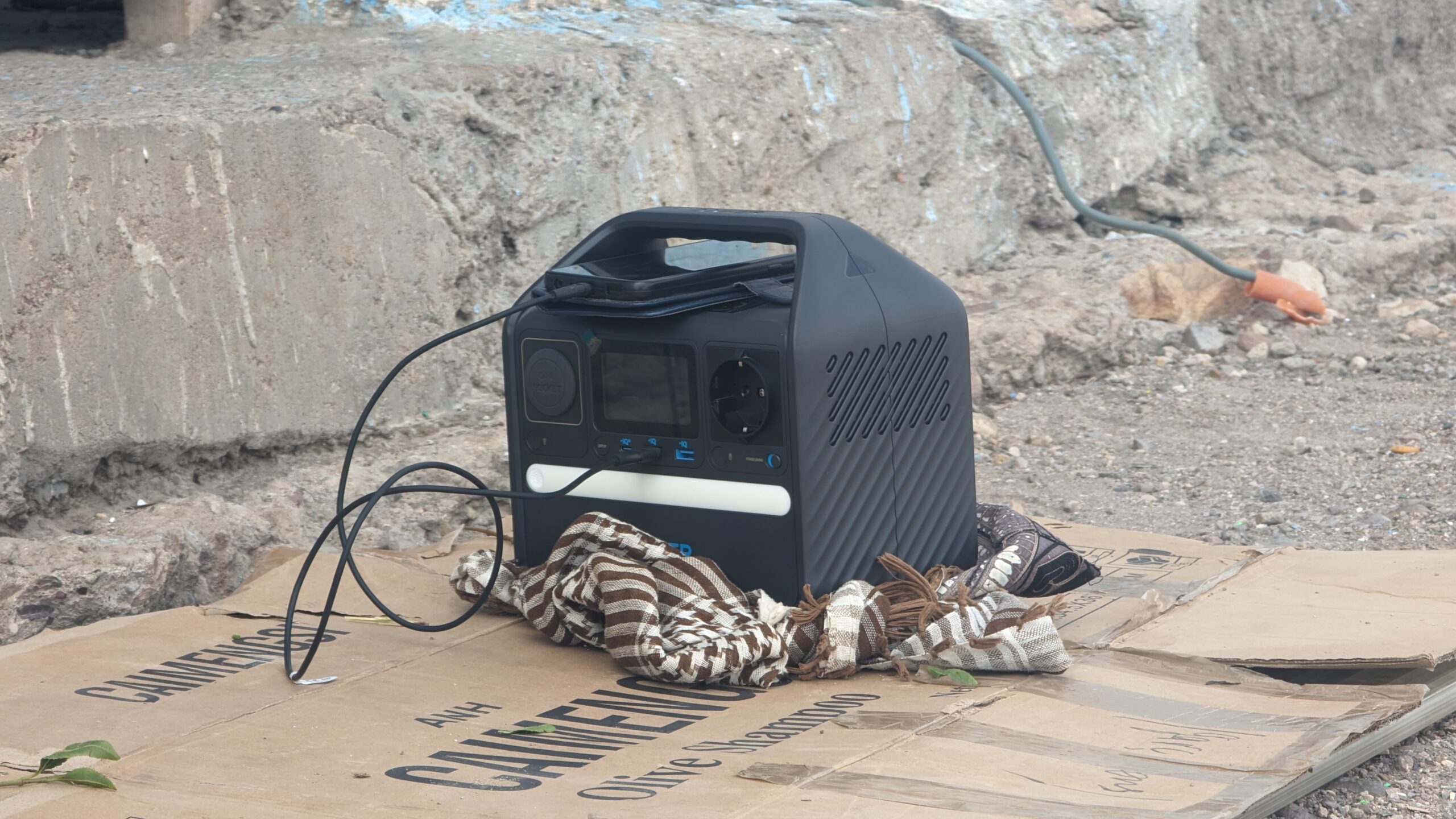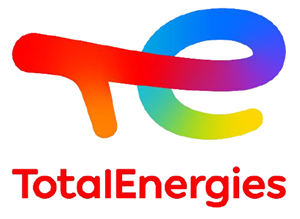Sign up for daily news updates from CleanTechnica on email. Or follow us on Google News!
Liquidstar’s 3rd micro data center and full spectrum utility center, also called a Waypoint, is now up and running in Djibouti. The Waypoint was installed in August 2023 and started operations in October. Liquidstar wants to use micro data centers to help address Africa’s compute and data sovereignty gap, while simultaneously increasing access to electricity, water, and the internet.
These Waypoints are solar-powered container-sized modular data centers that integrate their own electricity, water, and internet infrastructure. This approach ensures that Liquidstar not only realizes its vision of helping to bridge the digital divide, but also help bridge the much more important critical infrastructure divide by offering excess electricity, water, and internet services from the Waypoint to local communities at discounted rates.
The Waypoint was installed and activated on October 31st. There are currently 135 individuals signed up for rentals, and since October 31st, the Waypoint has completed over 1200 rentals and is in the process of increasing the total number of 250Wh batteries available from 20 to 80. Liquidstar says that the shipment has been delayed because of the security situation in the Red Sea. The Waypoint has also sold 69,500 ML of water from the atmospheric water generator.
Co-founded by Scott Salandy-Defour and Conor Colwell, and working with Harrison Stahl as its Chief Technology Officer, Liquidstar wants to use the air and sun to usher in the future of climate, impact, and compute, simultaneously providing access to electricity, water, and internet to individuals without access. The goal is to futureproof communities while also solving core Sustainable Development Goals.
Scott Salandy-Defour describes this ecosystem as a “Platform that runs on the utility rails of the future integrating a blockchain based stack to efficiently manage secure identity, transactions, and metering.” Liquidstar wants to catalyze the growth of solar power mini grids by taking out the expensive bits (the powerlines and power reticulation systems). Liquidstar’s ‘wireless’ battery powered sustainable ecosystems aim to solve energy access challenges for some of the powerless 1.1 billion, simplifying the normally tangled web of wires and pipes needed to support traditional utilities.
Liquidstar’s Waypoints are currently using solar power, with backup biogas power from human waste mixed with biogas generators on the way. With its battery charging and swapping system, people in the local villages and communities can pick up a battery pack from a Waypoint and take it home to power the appliances and equipment they need for multiple days, creating a much more direct wireless solution.
The micro data center in the Waypoint generates guaranteed revenue while providing consistent off-take of electricity (productive baseload). Liquidstar says that its Waypoints utilize custom hardware engineering and software to alter the economic dynamics of data centers in emerging markets and off-grid infrastructure access. Approximately 75-100 Waypoints equal the equivalent to a 1 MW data center. The distributed Micro Data Centers or Waypoints solve many of the challenges associated with building data centers in emerging markets and have 92% lower operating costs per month than traditional larger data centers, while simultaneously increasing access to electricity, water, and internet to 100 households, per Waypoint.
In addition to data centers, traditional minigrids have not progressed as quickly as had been expected on the African continent for several reasons, including the fact that concessional capital commitments have not been honored and deployed fast enough. This slow progress is impeding impactful change in the drive to develop renewable energy systems for universal electrification.
With over 600 million people still without access to electricity on the African continent, along with targets to connect this population by 2030, there is a lot of work needed to connect everyone via extending the traditional national grids as well as through these minigrids to have a chance of meeting these targets. A lot of minigrids also struggle to attain the minimum usage requirements to enable them to be viable, as in a lot of areas where these off-grid minigrids are sited and/or targeted, consumption from the local community is not able to support these required thresholds. This is where Liquidstar’s innovation hopes to tackle this major barrier by combining the wireless minigrids ecosystem with micro data centers. This way, Liquidstar’s waypoints can be more financially sustainable.
 Chip in a few dollars a month to help support independent cleantech coverage that helps to accelerate the cleantech revolution!
Chip in a few dollars a month to help support independent cleantech coverage that helps to accelerate the cleantech revolution!
The micro data centers are configured to generate revenue by running general data center applications such as running edge AI applications, training AI models, educational AI tutors, local file storage, and general cloud computing service, as well as cryptocurrency applications such as proof of work mining and proof of stake validation. The energy generated by the solar panels at the Waypoint is also used to power water production from atmospheric water generators, power the low earth orbit satellite-based onboard internet infrastructure, and charge the portable batteries for the battery swapping business. The rentable, portable batteries range from 250Wh packs to 2.4kWh battery packs made from second life battery cells. “Currently we are renting out the 250 Wh batteries for the equivalent of 30 USD cents per day and so far they’ve pretty much all been rented or have an active waitlist,’’ says Scott.
The Waypoint Ecosystem in Djibouti also has electric bikes, and those batteries are also charged by the Waypoint. These bikes are used for general transport services around the community. At the moment, the Waypoint in Djibouti in Kalaf is also powering a nursing center in the village as well as providing backup power to one of the buildings of the local school. A good validation point for the battery rental side of the business is that the rental batteries are rented out every day, indicating a compelling case for the market and the willingness to pay. Scott says that on the day they commissioned the Waypoint, they already had their first paying customers coming to rent some batteries within just a few hours of the batteries becoming available. All of this came from word of mouth spreading within the nearby community that there was a new energy-as-a-service provider in their area.

Liquidstar’s rental batteries come with the startup’s own proprietary IOT tracking chip. Water from the atmospheric water generator will be used in the near future to cool the micro data center as well as provide clean water for the nearby community. Water from this atmospheric generator is already available to the local community at a price point which is lower than the other source of water available in that area. The Waypoint in Djibouti uses a Genaq Atmospheric Water Generator integrated with an AC/heat pump and immersion cooler. “We also plan to use some of the water to cool the micro data centre and then sell that to locals for 30 cents per litre which is less than they pay for bottled water,’’ says Scott.
As a lot of places on the continent still have a low penetration of data center access due to infrastructure issues such as access to reliable electricity, internet, and water. Liquidstar’s modular micro data center approach hopes to help address this gap by providing a scalable micro data center ecosystem where they will be configured in a way such that they will have 1 or 2 racks of traditional data center systems.
The new Waypoint in Djibouti is the third prototype that Liquidstar has deployed so far. The first one was deployed in Jamaica with 30 kWp to test the micro data center ecosystem as well as a broad community and education focused wi-fi network with an AI tutor, educational videos, and email accounts all hosted within the Waypoint. The next one was deployed in Indonesia with 20 kWp of solar to test the model of providing water and electricity to the local community, incorporating a much smaller data center. The 16 kW Djibouti Waypoint is a more complete hybrid of these two ecosystems and operates under a paid contract with USAID and the Ministry of Energy in Djibouti.
Liquidstar’s systems are modular, and the solar power can be expanded as needed, working on the right balance of deployment costs and specific demand. Scott says they are seeing increasing demand from families with children that want to light up their homes after dark for their children to be able to do homework. Other appliances being powered are small fans for families to cool themselves from the heat, radios for entertainment, and small coolers to keep drinks and other items cool. Another interesting thing they noticed is some of the customers actually rent batteries from Liquidstar’s Waypoint and then take those batteries to other villages and charge people’s cell phones for a fee.

Liquidstar hopes that its Waypoints will usher in an entirely new electron-based ecosystem from the ground up. Enabling electricity-based financial inclusion, e-mobility, increased water access, and access to the latest ground-breaking AI models for farming, health, and education, Waypoints have the potential to reimagine the full spectrum of utilities needed to power communities, not just leaping into sustainable consumption but serving as a foundational layer for the future of off-grid life.

Images courtesy of Liquidstar
Have a tip for CleanTechnica? Want to advertise? Want to suggest a guest for our CleanTech Talk podcast? Contact us here.
Latest CleanTechnica TV Video
CleanTechnica uses affiliate links. See our policy here.




